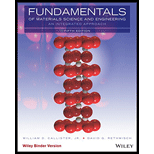
Fundamentals of Materials Science and Engineering, Binder Ready Version: An Integrated Approach
5th Edition
ISBN: 9781119175483
Author: William D. Callister Jr., David G. Rethwisch
Publisher: WILEY
expand_more
expand_more
format_list_bulleted
Question
Chapter 6.8, Problem 1QP
To determine
To explain:
The difference between self-diffusion and inter diffusion.
Expert Solution & Answer
Answer to Problem 1QP
The difference between self-diffusion and inter diffusion are explained below.
Explanation of Solution
Diffusion:
When atoms in substances moves from higher concentration to lower concentration area, until balance is achieved.
| S.no | Self-diffusion | Inter diffusion |
| 1. | At the point when all atoms that interchanges locations are of similar type. | The metals in the diffusion together inter diffuse to each other. |
| 2. | Diffusion occurs within same pure metal. | Diffusion occurs between two different metals. |
Want to see more full solutions like this?
Subscribe now to access step-by-step solutions to millions of textbook problems written by subject matter experts!
Students have asked these similar questions
36
2) Use the method of MEMBERS to determine the true magnitude and
direction of the forces in members1 and 2 of the frame shown below
in Fig 3.2.
300lbs/ft
member-1
member-2
30°
Fig 3.2.
https://brightspace.cuny.edu/d21/le/content/433117/viewContent/29873977/View
Control
Change the following code so that there is always at least one way to get from the left corner to the top right, but the labyrinth is still randomized.
The player starts at the bottom left corner of the labyrinth. He has to get to the top right corner of the labyrinth as fast he can, avoiding a meeting with the evil dragon. Take care that the player and the dragon cannot start off on walls. Also the dragon starts off from a randomly chosen position
public class Labyrinth { private final int size; private final Cell[][] grid;
public Labyrinth(int size) { this.size = size; this.grid = new Cell[size][size]; generateLabyrinth(); }
private void generateLabyrinth() { Random rand = new Random(); for (int i = 0; i < size; i++) { for (int j = 0; j < size; j++) { // Randomly create walls and paths grid[i][j] = new Cell(rand.nextBoolean()); } } // Ensure start and end are…
Chapter 6 Solutions
Fundamentals of Materials Science and Engineering, Binder Ready Version: An Integrated Approach
Ch. 6.8 - Prob. 1QPCh. 6.8 - Prob. 2QPCh. 6.8 - Prob. 3QPCh. 6.8 - Prob. 4QPCh. 6.8 - Prob. 5QPCh. 6.8 - Prob. 6QPCh. 6.8 - Prob. 7QPCh. 6.8 - Prob. 8QPCh. 6.8 - Prob. 9QPCh. 6.8 - Prob. 10QP
Ch. 6.8 - Prob. 11QPCh. 6.8 - Prob. 12QPCh. 6.8 - Prob. 13QPCh. 6.8 - Prob. 14QPCh. 6.8 - Prob. 15QPCh. 6.8 - Prob. 16QPCh. 6.8 - Prob. 17QPCh. 6.8 - Prob. 18QPCh. 6.8 - Prob. 19QPCh. 6.8 - Prob. 20QPCh. 6.8 - Prob. 21QPCh. 6.8 - Prob. 22QPCh. 6.8 - Prob. 23QPCh. 6.8 - Prob. 24QPCh. 6.8 - Prob. 25QPCh. 6.8 - Prob. 26QPCh. 6.8 - Prob. 27QPCh. 6.8 - Prob. 28QPCh. 6.8 - Prob. 29QPCh. 6.8 - Prob. 30QPCh. 6.8 - Prob. 31QPCh. 6.8 - Prob. 32QPCh. 6.8 - Prob. 33QPCh. 6.8 - Prob. 34QPCh. 6.8 - Prob. 35QPCh. 6.8 - Prob. 36QPCh. 6.8 - Prob. 37QPCh. 6.8 - Prob. 38QPCh. 6.8 - Prob. 39QPCh. 6.8 - Prob. 40QPCh. 6.8 - Prob. 41QPCh. 6.8 - Prob. 42QPCh. 6.8 - Prob. 43QPCh. 6.8 - Prob. 44QPCh. 6.8 - Prob. 45QPCh. 6.8 - Prob. 46QPCh. 6.8 - Prob. 47QPCh. 6.8 - Prob. 1DPCh. 6.8 - Prob. 2DPCh. 6.8 - Prob. 3DPCh. 6.8 - Prob. 4DPCh. 6.8 - Prob. 5DPCh. 6.8 - Prob. 1FEQPCh. 6.8 - Prob. 2FEQP
Knowledge Booster
Similar questions
- I need expert handwritten solutionarrow_forwardRefer to page 302 for a dataset and feature descriptions. Instructions: Analyze the dataset and identify the most important features for prediction using provided statistical metrics. • Discuss how removing certain features might affect the accuracy and interpretability of models. Propose a feature selection strategy based on the given data. Link: [https://drive.google.com/file/d/1wKSrun-GlxirS31Z9qoHazb9tC440 AZF/view?usp=sharing]arrow_forwardRefer to page 206 for clustering results of a dataset. Instructions: • Assess the quality of the clusters using metrics such as silhouette score or intra-cluster variance. • Identify any issues with the clustering results, such as overlapping or poorly defined clusters. • Suggest ways to improve clustering performance, such as feature selection or scaling. Link: [https://drive.google.com/file/d/1wKSrun-GlxirS31Z9qoHazb9tC440 AZF/view?usp=sharing]arrow_forward
- Can you solve this for me?arrow_forwardChange the following code so that it checks the following 3 conditions: 1. there is no space between each cells (imgs) 2. even if it is resized, the components wouldn't disappear 3. The GameGUI JPanel takes all the JFrame space, so that there shouldn't be extra space appearing in the frame other than the game. Main(): Labyrinth labyrinth = new Labyrinth(10); Player player = new Player(9, 0); Dragon dragon = new Dragon(9, 9); JFrame frame = new JFrame("Labyrinth Game"); GameGUI gui = new GameGUI(labyrinth, player, dragon); frame.add(gui); frame.setSize(600, 600); frame.setDefaultCloseOperation(JFrame.EXIT_ON_CLOSE); frame.setVisible(true); public class GameGUI extends JPanel { private final Labyrinth labyrinth; private final Player player; private final Dragon dragon; //labyrinth, player, dragon are just public classes private final ImageIcon playerIcon = new ImageIcon("data/images/player.png");…arrow_forwardRefer to page 304 for a system architecture diagram and potential threats. Instructions: • ° Identify and categorize threats using STRIDE (Spoofing, Tampering, Repudiation, Information Disclosure, Denial of Service, Elevation of Privilege). Discuss the impact of each threat on system components. • Suggest mitigation strategies for the most critical threats. Link: [https://drive.google.com/file/d/1wKSrun-GlxirS31Z9qoHazb9tC440 AZF/view?usp=sharing]arrow_forward
- Find the most economical cross-section of a 3-core distributor cable 250 m long supplying a load of 80 kW at 400 V and 0.8pf lagging for 4000 hours per annum and open circuited for the remainder of the year. The cost of the cable including installation is (15a+25) per meter, where a 'is area of each conductor in cm². The interest and depreciation total 10 per cent and cost of energy wasted is 10% per unit. The resistance per km of conductor of 1 cm² cross-section is 0.173ohms.arrow_forwardRefer to page 207 for a user interface design specification. Instructions: • Evaluate the design using Nielsen's usability heuristics. • Identify potential usability issues and categorize them based on severity. • Propose specific design improvements to address these issues. Link: [https://drive.google.com/file/d/1wKSrun-GlxirS31Z9qoHazb9tC440 AZF/view?usp=sharing]arrow_forwardRefer to page 205 for system logs of a distributed service. Instructions: • Analyze the logs to identify faults (e.g., node crashes, communication failures). Propose fault-tolerance mechanisms such as replication or consensus algorithms to handle these faults. Discuss the trade-offs between fault tolerance and system performance. Link: [https://drive.google.com/file/d/1wKSrun-GlxirS3IZ9qoHazb9tC440 AZF/view?usp=sharing]arrow_forward
- First Draw the equation then solve it using double integral plz I need to solve expert I don't need to to solve Ai plz use by Hand and show me starrow_forwardRefer to page 303 for a blockchain network's transaction history. Instructions: • Evaluate the network's performance under different consensus mechanisms (e.g., Proof of Work, Proof of Stake). • Identify issues such as transaction delays or energy inefficiency. • Propose a suitable consensus mechanism for the given network characteristics. Link: [https://drive.google.com/file/d/1wKSrun-GlxirS31Z9qoHazb9tC440 AZF/view?usp=sharing]arrow_forwardRefer to page 208 for search query results and relevance judgments. Instructions: Analyze the relevance judgments to evaluate the effectiveness of the initial query. • Discuss how relevance feedback could refine the search results. • Propose modifications to the query or ranking algorithm based on user feedback. Link: [https://drive.google.com/file/d/1wKSrun-GlxirS3IZ9qoHazb9tC440 AZF/view?usp=sharing]arrow_forward
arrow_back_ios
SEE MORE QUESTIONS
arrow_forward_ios
Recommended textbooks for you
 MATLAB: An Introduction with ApplicationsEngineeringISBN:9781119256830Author:Amos GilatPublisher:John Wiley & Sons Inc
MATLAB: An Introduction with ApplicationsEngineeringISBN:9781119256830Author:Amos GilatPublisher:John Wiley & Sons Inc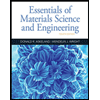 Essentials Of Materials Science And EngineeringEngineeringISBN:9781337385497Author:WRIGHT, Wendelin J.Publisher:Cengage,
Essentials Of Materials Science And EngineeringEngineeringISBN:9781337385497Author:WRIGHT, Wendelin J.Publisher:Cengage,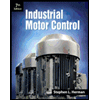 Industrial Motor ControlEngineeringISBN:9781133691808Author:Stephen HermanPublisher:Cengage Learning
Industrial Motor ControlEngineeringISBN:9781133691808Author:Stephen HermanPublisher:Cengage Learning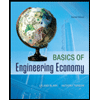 Basics Of Engineering EconomyEngineeringISBN:9780073376356Author:Leland Blank, Anthony TarquinPublisher:MCGRAW-HILL HIGHER EDUCATION
Basics Of Engineering EconomyEngineeringISBN:9780073376356Author:Leland Blank, Anthony TarquinPublisher:MCGRAW-HILL HIGHER EDUCATION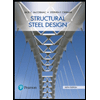 Structural Steel Design (6th Edition)EngineeringISBN:9780134589657Author:Jack C. McCormac, Stephen F. CsernakPublisher:PEARSON
Structural Steel Design (6th Edition)EngineeringISBN:9780134589657Author:Jack C. McCormac, Stephen F. CsernakPublisher:PEARSON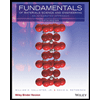 Fundamentals of Materials Science and Engineering...EngineeringISBN:9781119175483Author:William D. Callister Jr., David G. RethwischPublisher:WILEY
Fundamentals of Materials Science and Engineering...EngineeringISBN:9781119175483Author:William D. Callister Jr., David G. RethwischPublisher:WILEY

MATLAB: An Introduction with Applications
Engineering
ISBN:9781119256830
Author:Amos Gilat
Publisher:John Wiley & Sons Inc

Essentials Of Materials Science And Engineering
Engineering
ISBN:9781337385497
Author:WRIGHT, Wendelin J.
Publisher:Cengage,

Industrial Motor Control
Engineering
ISBN:9781133691808
Author:Stephen Herman
Publisher:Cengage Learning

Basics Of Engineering Economy
Engineering
ISBN:9780073376356
Author:Leland Blank, Anthony Tarquin
Publisher:MCGRAW-HILL HIGHER EDUCATION

Structural Steel Design (6th Edition)
Engineering
ISBN:9780134589657
Author:Jack C. McCormac, Stephen F. Csernak
Publisher:PEARSON

Fundamentals of Materials Science and Engineering...
Engineering
ISBN:9781119175483
Author:William D. Callister Jr., David G. Rethwisch
Publisher:WILEY